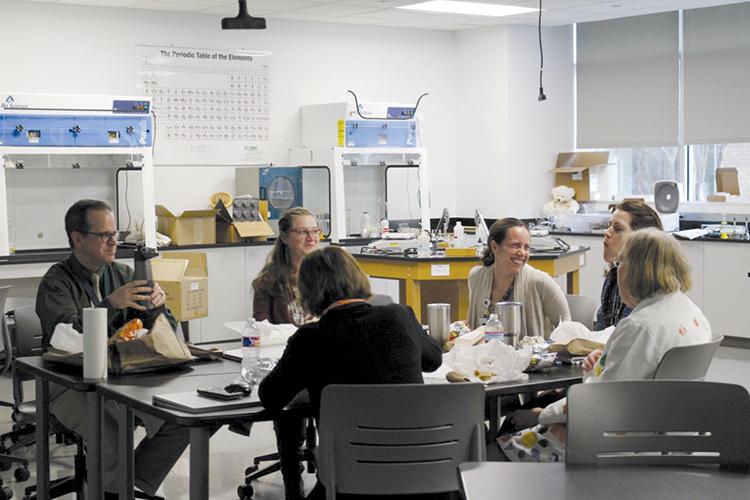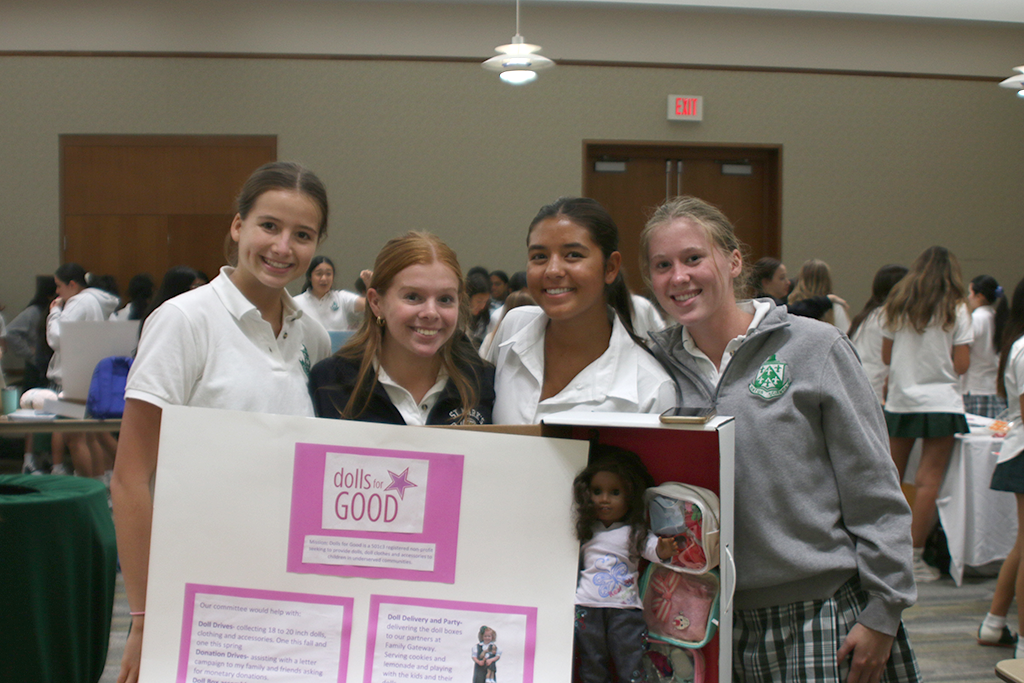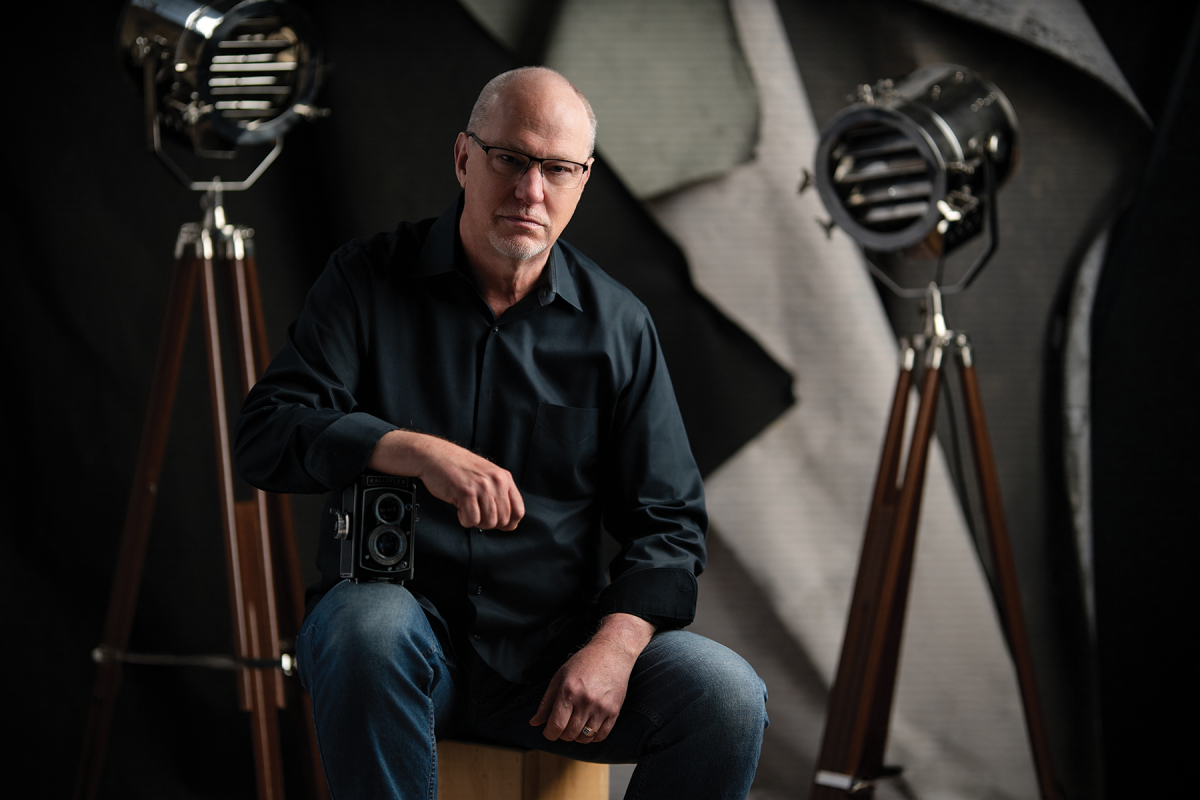//PICTURED ABOVE: Members of the science department gather for a meeting about exams.
This year, the Hockaday administration has allowed each department to individually make the decision to cancel or keep cumulative spring exams.
In the wake of the tornado that shook Dallas in October, the administration and each department had conversations on how to proceed with assignments, tests and the days the school lost while the city and students recovered.
Many steps were taken to address the effects of the tornado, such as transitioning from quarters to semesters, adding two weeks without any assignments, assessments or uniforms and adding grace periods for students who might be late to school due to traffic delays. The most recent change is the optional cancellation of some cumulative spring exams, which was decided by each department.
While the discussion surrounding exams and the most effective way to test students’ understanding of course material has been going on for years, this year it was brought to the forefront of conversations about how to deal with the continuing repercussions of the tornado. History teacher Lucio Benedetto brought up the idea of canceling cumulative spring exams in a department meeting led by History Department Chair Kathryn Hodgkinson, who then brought it up with Head of Upper School Lisa Culbertson.
“Ms. Culbertson was very open to the whole idea,” Benedetto said. “Essentially, it was up for proposal and discussion with the other department heads. Eventually, it came down to the kind of thing where Ms. Culbertson suggested to everybody that if you want to have exams, you can, but if you don’t, we’re not going to require you to,”
So far, the science and history departments have decided to cancel exams entirely, while the language department has established a class-by-class decision, and the math department has kept all exams. While some classes will not hold formal exams, they will supplement the grade with similar projects or assessments worth the same amount in overall grades.
Most students have reacted positively to this decision. Sophomore Courtenay Sands agreed with the department-by- department decisions, commenting on the nature of each class.
“For me, cumulative exams are really effective for math because you have to look back on all of the things you’ve learned in the past year, and you really build on your knowledge in math class,” Sands said. “For languages, too, you build on what you already know.”
Junior Barbara Lou said canceling exams could be helpful to her and other AP students.
“I think obviously all of us are very glad that some of the stress is taken off, and I think it is positive in terms of how we now have more time to prepare in other ways for if we have AP exams, or just to go over material with teachers,” Lou said.
Other students, however, expressed concerns about possible negative effects. “I know for the freshmen, they are getting their history and science exams canceled, and I don’t know how it’ll affect them in the future, because it may make them less prepared for having exams next year in high school and for college as well,” Sands said.
Still, the overall reaction has been positive, from students and teachers alike. Whether the change will be kept in future years is uncertain, but both the history and science departments are open to the possibility. Science Department Chair Marshall Bartlett credited the administration for flexibility.
“I think we do have administrators in place, and I’d particularly like to give a shout-out to our new head of Upper School, who is very willing to come in, listen to the conversation, and not just continue to engage in the conversation, but actually say, ‘Let’s do something, let’s try something, let’s see how it goes,’” Bartlett said.
Story by Laine Betanzos
Photo by Lena Hicks







